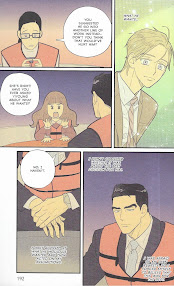I learned to be skeptical of these types of stories early in life. In my prepubescent years, I read a book in which a young boy spends all day staring into a fire and making up stories about all the wonderful things that other people will do for him. About the same time, I read C.S. Lewis's rather acerbic analysis that fantasy writers--who are accustomed to invented worlds--are better at recognizing the gap between fiction and reality than writers of contemporary fiction and "true life" school stories. The latter begin to imagine that all those things in the story ought to happen to them.
I consequently developed a distaste for "should" commentary and advice, the type of stuff that happens on social media before social media every came into being.
Of course, in our world, lots of people get paid to give lots of other people advice based on theoretical stories rather than research and facts. But the underlying negative fall-out should never be forgotten.In a CSI episode "Feeling the Heat," parents kill a child. They are absolutely convinced that the baby is suffering from a genetic disorder. Since their previous child died from that disorder, they decide that they can't go through the same pain again.
It turns out the child was suffering from ordinary grogginess due to sitting near chemicals. Not good. But not life threatening. The parents imposed a story onto what they saw. They didn't wait to collect real evidence. They didn't think critically about the situation. They ran with the theoretical story and imposed it on a living being.At a less murderous level, Kang in On and Off encourages his boyfriend to leave his job and become an actor. He doesn't want Ahn to leave his job. But he has created a story in his mind of what Ahn needs without actually talking to Ahn and letting Ahn share an important proposal with him. When Ahn's friends trap Kang on a boat and tell him off, he rethinks the story he has created entirely on his own.
As I state on Votaries about Elementary, true empathy is objective, not emotional. It asks, "What do I not know? What questions do I need to ask?" rather than "What label do I have to hand to construct a story? How do I think other people should be behaving?"


